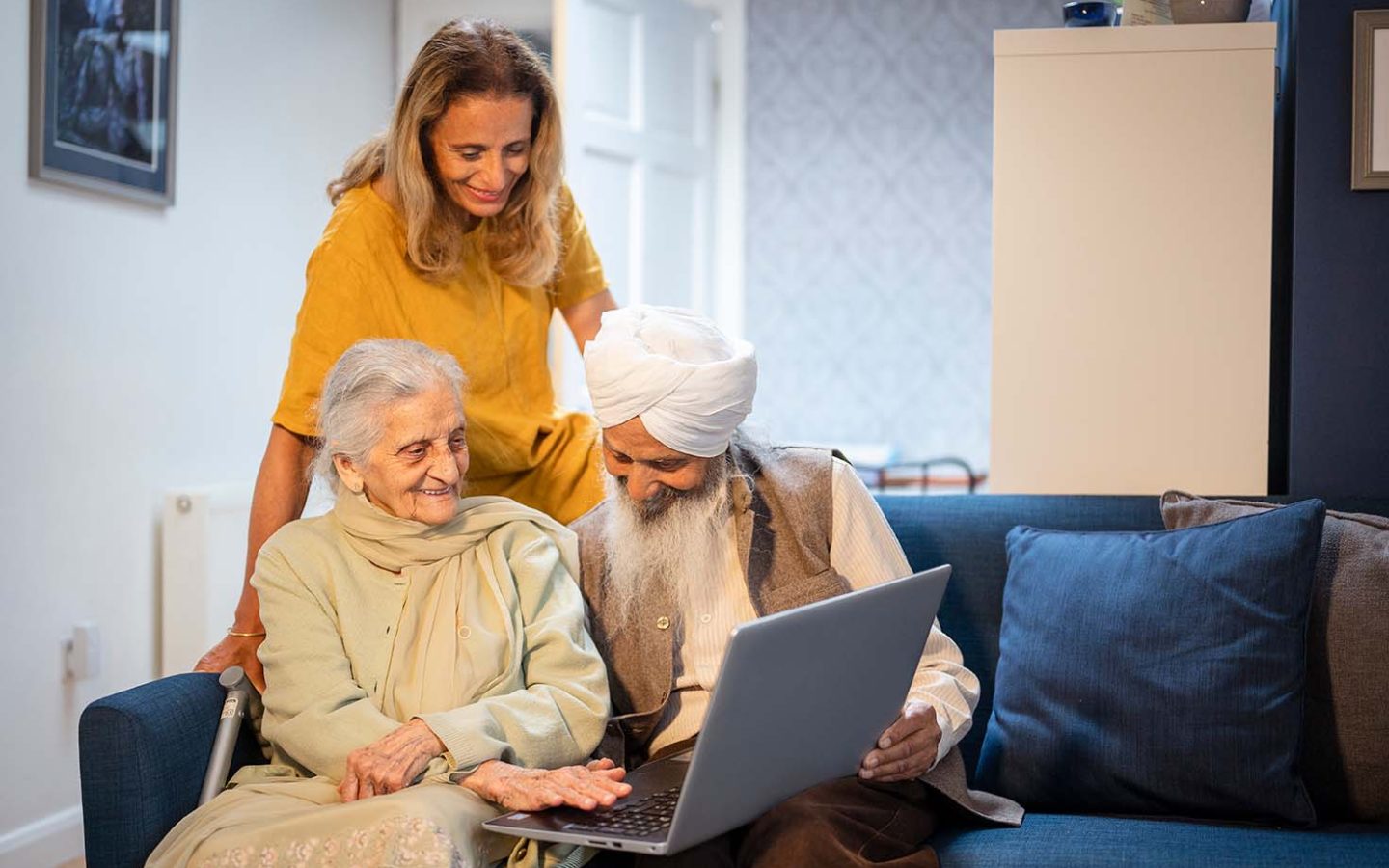Digital exclusion and unpaid carers in South Yorkshire
Our new report, written by Centre for Care colleagues Kate Hamblin and Rachael Black, looks at unpaid carers in South Yorkshire and their use of, and access to, digital technologies and online services.
- Carers reported that barriers to being digitally included were the affordability of devices, concerns about online safety and security and confidence.
- Carers need to be able to choose when they use digital services and when they prefer face to face support.
- Carers need practical support to build skills and confidence and a single source of easy to access information.
The report was produced in collaboration with the University of Sheffield Information School and Sheffield Carers Centre and funded by Crook Public Service Fellowships and the ESRC
Based on discussions with unpaid carers living in the South Yorkshire region, the report provides a first hand account of how unpaid carers are interacting with different types of digital technologies and online services, and what barriers exist which stop them from feeling digitally included.
Recommendations
The report makes 5 key recommendations for policy, practice and service provision:
- Information and advice: A single source of regularly updated, unbiased and easy to understand information and advice was felt to be needed.
- Collaboration between different services: Services, such as the Job Centre and Health services need to work together to support and signpost carers for example sharing information about local support and social tariffs.
- Digital by choice: The ability to choose was felt to be important, but also support to enable people to choose.
- Device loans and repair schemes: The provision of loan and repair services (and publicity about these services) could support more carers to engage with digital and online services.
- Practical support for skills and confidence: Carers welcomed opportunities to develop practical skills and confidence, recognising that all those who had taken part in the sessions had some familiarity with digital devices. Support for those they cared for to develop their own digital capabilities was also felt to be important.
About the authors of the report
Dr Kate Hamblin is Senior Research Fellow at the Centre for International Research on Care, Labour and Equalities, University of Sheffield and Lead for Digital Care: roles, risks, realities and rewards at the Centre for Care. She joined the University of Sheffield in 2018 to work on the Sustainable Care programme. She currently leads the Centre for Care’s Digital Care research theme and is the UK Networks lead for the IMPACT Centre.
Dr Rachael Black is the Impact Specialist in the Centre for Care, working with academics and external partners including charities and policy makers to mobilise research findings to have the greatest impact beyond academia. Her role is to work with our researchers to plan for impact, explore the ways research findings can be widely shared and identify partnerships and possible collaborations.


